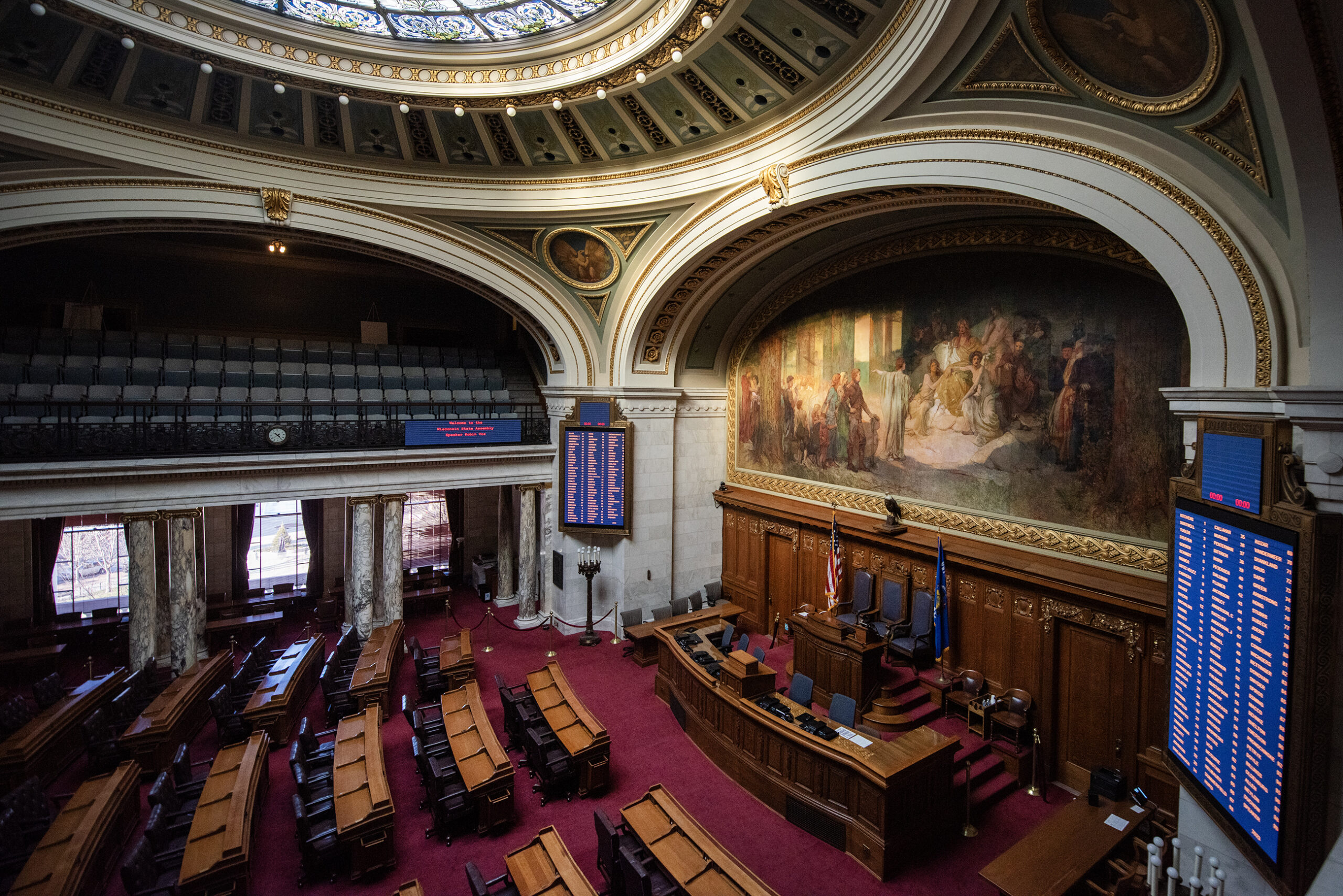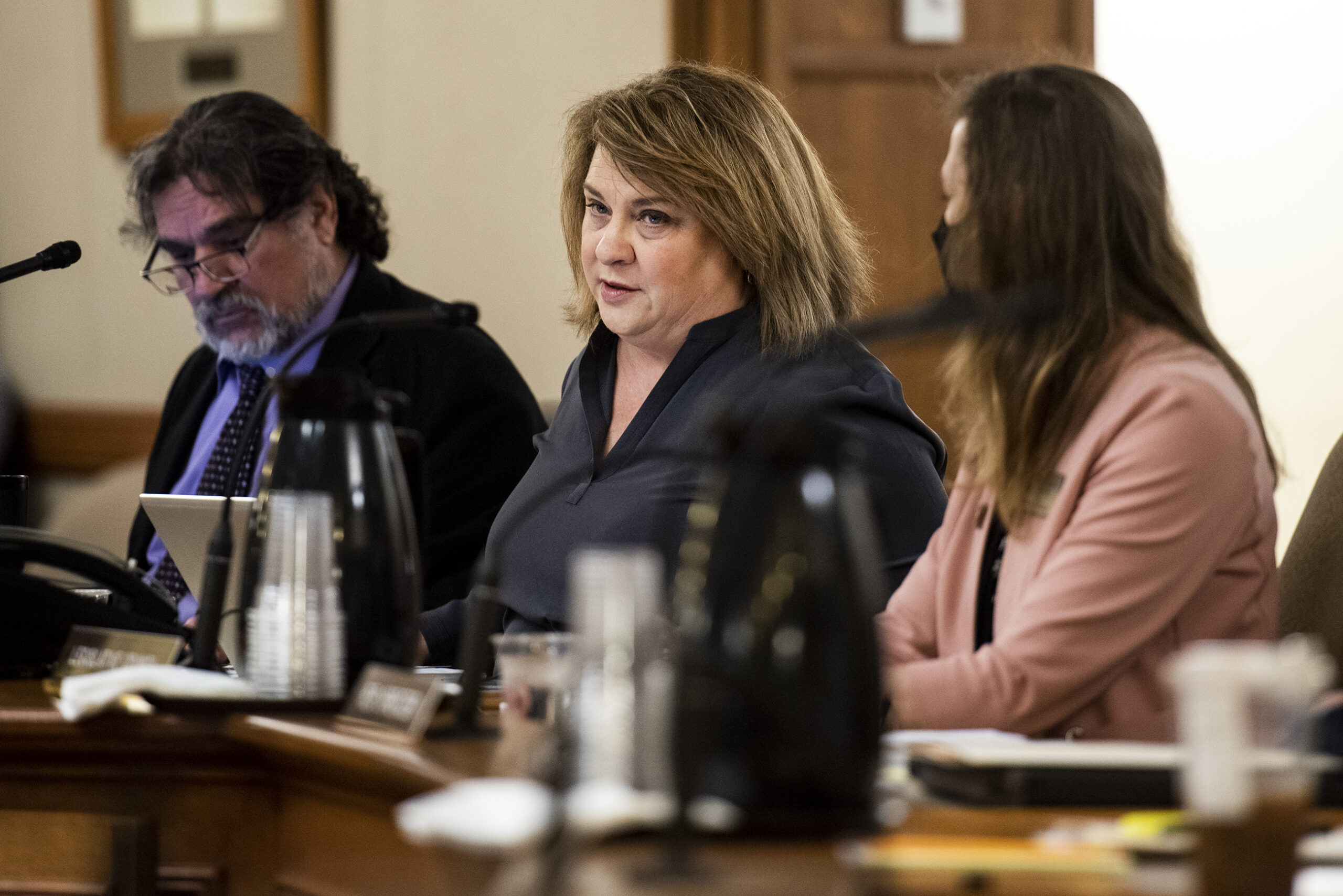As the dust settles from the past year’s redistricting battles in Wisconsin, the state Legislature is undergoing a shakeup, with nearly half of all state lawmakers having announced they won’t run in their old districts.
All told, at least 61 members of the state Assembly and Senate won’t run again in their old districts. Of those, 41 are Republicans and 20 are Democrats.
In the Assembly alone, 40 representatives — more than a third of the chamber —have either filed to run for new seats in the Legislature or say they plan on it.
Stay informed on the latest news
Sign up for WPR’s email newsletter.
Another 16 state lawmakers, including eight Democrats and eight Republicans, have announced plans to leave the Legislature entirely.
University of Wisconsin-La Crosse Political Science Professor Anthony Chergosky told WPR it’s not a surprise to see “lots of big decisions from lawmakers after redistricting,” but this year is notably different.
For starters, the legislative maps that will be used in the August primary and November general election were drawn by Democratic Gov. Tony Evers, but passed by Republican lawmakers in February. That bipartisanship was driven by Republicans’ fear that the Wisconsin Supreme Court’s liberal majority would hand down maps less favorable to their party after those justices declared maps drawn by Republicans two years ago unconstitutional.
Chergosky described those 2022 GOP maps as a “status quo type redistricting” because the Supreme Court’s former conservative majority had ordered Evers and the Republican-controlled Legislature to use a “least change” approach in drawing new maps. The 2011 maps, which which were also drawn by Republicans, simply “solidified the majority that the Republicans had previously won in the 2010 midterms.”
“The bigger the change in maps, the bigger the effects you’re going to see on these career moves that people are making,” Chergosky said. “So, it was inevitable that there would be a lot of retirements and there would be a lot of people running for different offices, some people even moving from district to district, physically moving. That is all to be expected.”
Even under Evers’ new maps, Chergosky said he “would tend to favor Republicans’” chances in their quest to maintain the GOP majorities they’ve enjoyed in the Senate and Assembly since 2010. In short, he said, Wisconsin has gone “from a certain Republican majority to at least some question about it,” which is buoying Democrats’ hopes of winning back control for the first time in more than a decade.
“In today’s political climate in Wisconsin, it’s pretty miserable to be in the minority party in the state Legislature,” Chergosky said. “What political science research shows is that political parties really benefit in terms of candidate recruitment when they’re either in the majority, or they have a real shot at winning the majority. And I think Democrats are experiencing that in this cycle.”
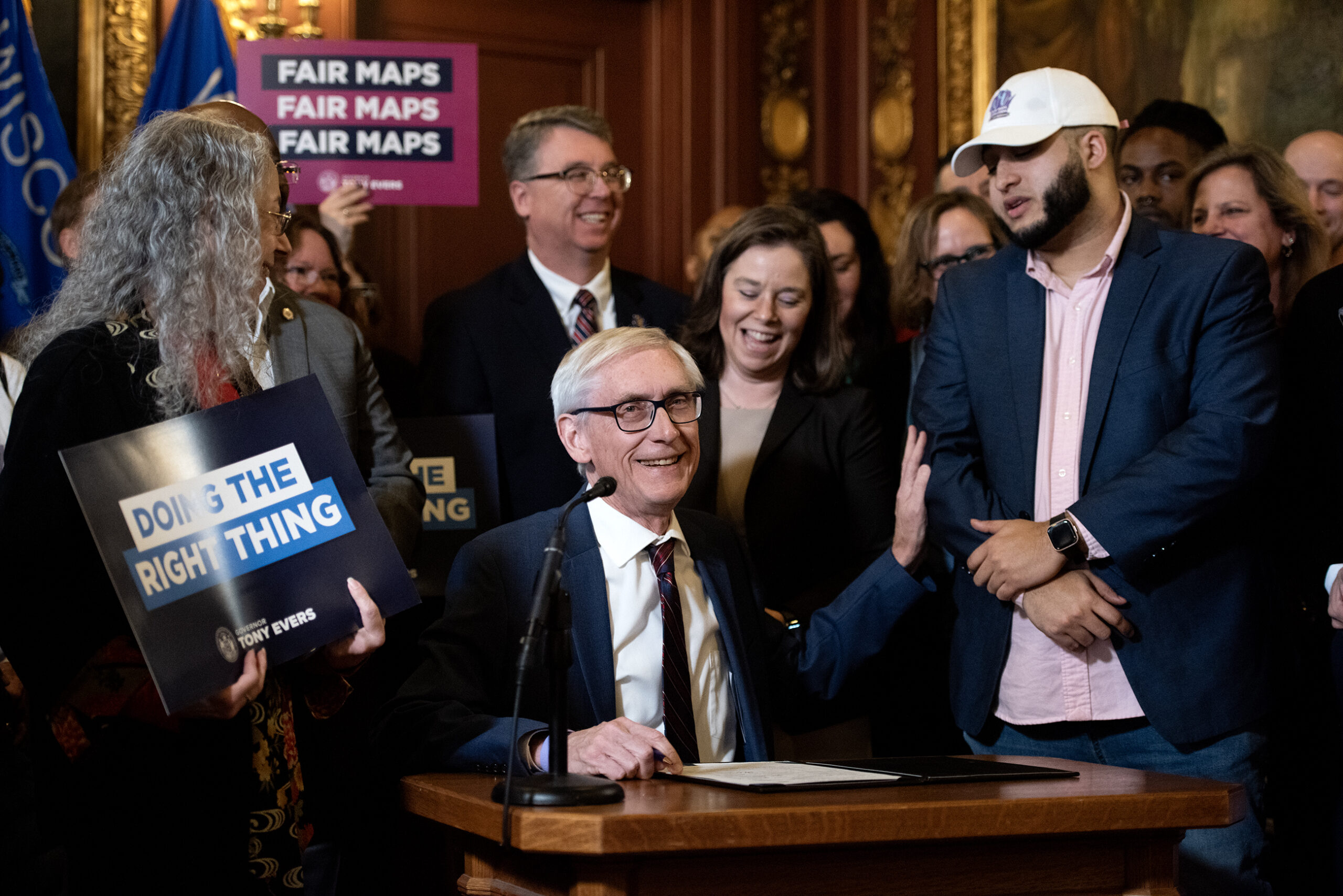
New maps come with plenty of Democratic and Republican primary elections
There will be at least 26 primaries between Republican and Democratic candidates in the Assembly and Senate this August, a number that could grow by next week. Many of those are due to newly-opened seats as incumbents opted against seeking reelection.
In order to avoid a primary in the Wisconsin’s new 8th Senate district, Sen. Dan Knodl, R-Germantown, is instead running for the state’s new 24th Assembly District.
If Knodl wanted to keep his Senate seat, he would have faced off with Sen. Duey Stroebel, R-Saukville. Knodl told WPR he has a very healthy respect for Stroebel and after discussions decided to “step aside from that.”
“It just doesn’t make sense to expend the type of resources that would be necessary for a primary race and then still be facing a general after that,” Knodl said.
But for Knodl to win a shot at the 24th Assembly district, he will likely face a primary challenge from Rep. Janel Brandtjen, R-Menomonee Falls, who was drawn into the district under Evers’ maps.
“So, it would set up that primary between her and I, which is simply a matter of these districts being combined,” Knodl said. “No matter where we turn, the Republicans are in primary situations, either in their Senate seats or their Assembly seats.”
Brandtjen announced in April that she will run for the 24th district. Her statement came a week after Waukesha County District Attorney Susan Opper said she wouldn’t pursue criminal charges tied to alleged campaign finance violations against the Republican despite a recommendation from the Wisconsin Ethics Commission.
Knodl said the process that brought new legislative maps to Wisconsin wasn’t fair and he accused Democrats of “legislation by lawsuit” since they lost their majorities in 2010.
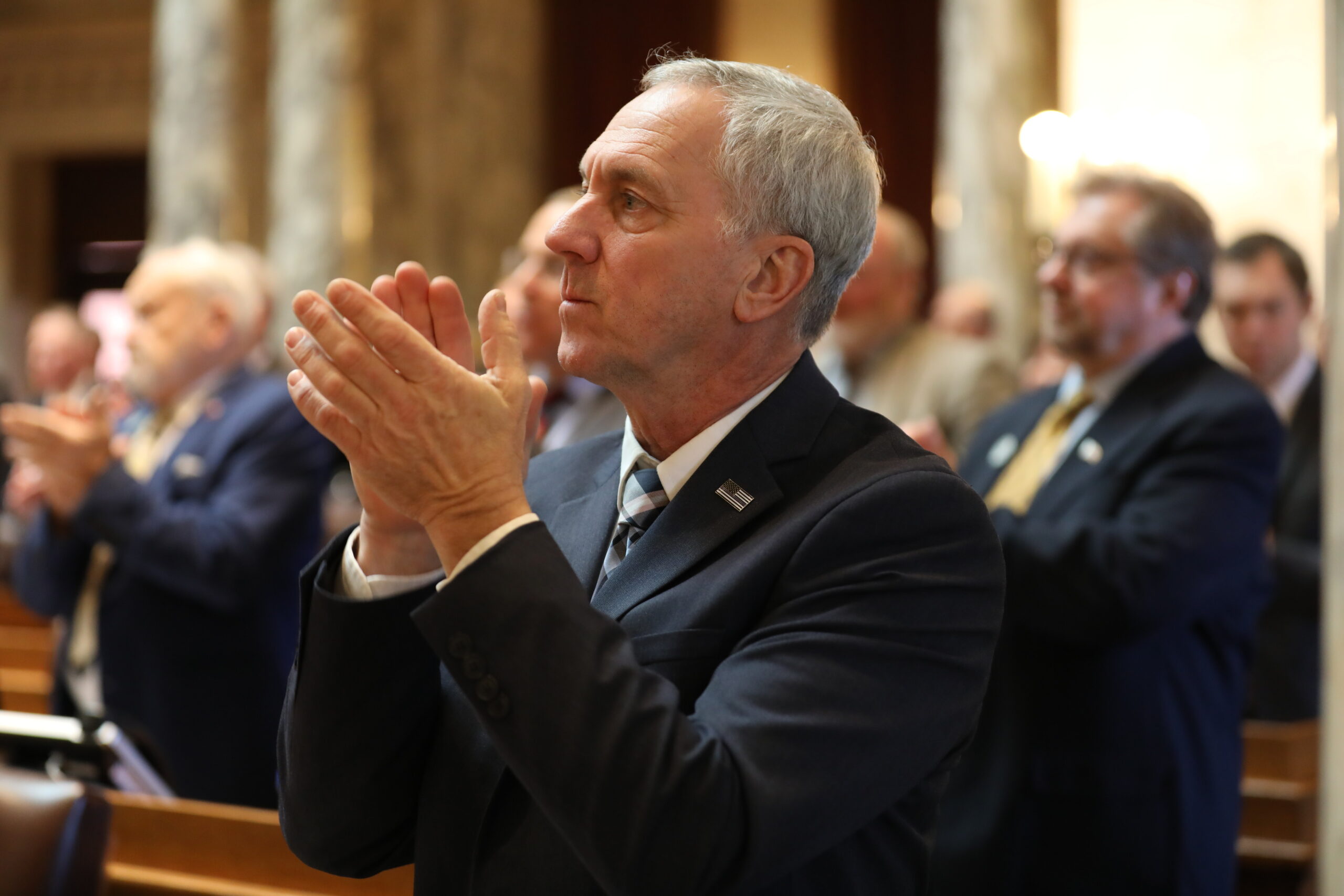
Many lawmakers leaving the Legislature, but most don’t mention new maps
Most of the 16 lawmakers that have announced plans to leave the Legislature didn’t cite Evers’ maps as factors in their decisions, but freshman state Rep. Nik Rettinger, R-Mukwonago did. In his April announcement, Rettinger said “the extreme partisan redistricting process pushed by Governor Evers and our activist State Supreme Court majority” left him paired with a long-serving GOP representative.
State Sen. Melissa Agard, D-Madison, who served as the Senate’s minority leader from 2021 through 2023, is also stepping away from state politics. But she said the new maps were not a factor in her decision. She’s running instead for the open Dane County executive seat.
She said the new maps will mean “a lot of turnover in the Wisconsin state Legislature” but also said being in the minority party amid “one of the most divided legislatures in the nation” wears on Democrats.
“I’ve chatted with a number of my colleagues that feel like maybe it’s time to move on to something else where they can make more of a difference in a community,” Agard said.
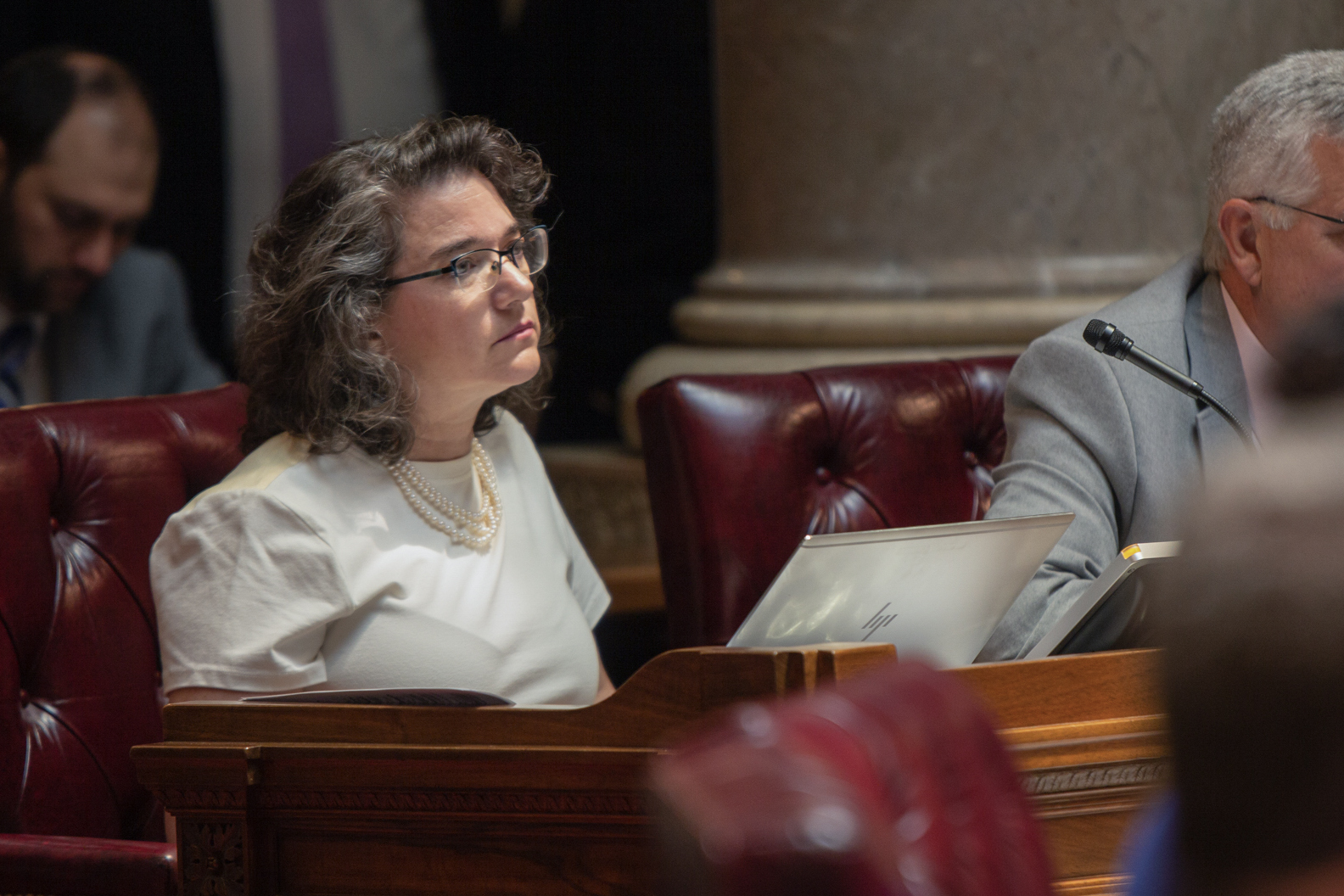
She accused Republicans lawmakers of using “parlor tricks” to stifle the voices of Democrats, withhold pre-approved funding for important issues like PFAS and reject Evers’ appointments to several state boards without debate.
Still, she said the last session was “super fulfilling” because Democrats were able to work with Republicans on other issues like a local government funding deal, new alcohol laws and funding for stadium upgrades aimed at keeping the Milwaukee Brewers in Wisconsin.
The final tally of lawmakers running for re-election in new districts or leaving the Legislature won’t be known until after June 3, when nomination papers are due to the Wisconsin Elections Commission.
Wisconsin Public Radio, © Copyright 2025, Board of Regents of the University of Wisconsin System and Wisconsin Educational Communications Board.
